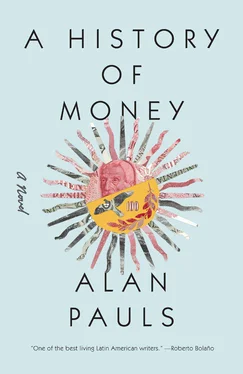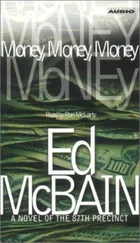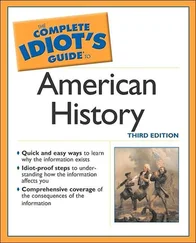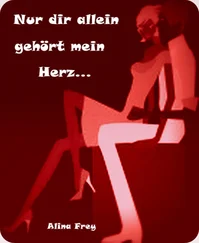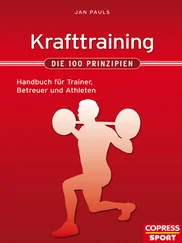But what he’s interested in is the box, the safe deposit box, going to the bank every now and then and saying, “Box two, unit three,” and putting the key in the lock — the same lock he used in his former life, with the classic difficulty of never remembering which way to insert the key, whether the teeth should be facing right or left — and then taking it out, opening it, and seeking refuge in it under that intrusive gaze before tenderly filling it with all the things Sonia has asked him to store: jewels, bonds, deeds, foreign currency. This is it, this ridiculous, solitary ceremony that sometimes draws a few tears from him and leaves him feeling exhausted, as though he’s emerging from an emotional ordeal; this and not the money, despite the gigolo hypothesis his mother reproaches him with when he fills her in on the new developments in his life. “Wasn’t living off women always one of your secret fantasies?” she says, smiling from ear to ear, a little buzzed after a visit to the osteopath. As far as he’s aware, there’s no key to the nerve center of his secret fantasies, and if there is one, his mother has never had a copy, unless all mothers by law, by virtue of being mothers, have a direct line to the laboratories where their children’s secret fantasies are cooked up. He ’s never given her one, anyway. How she arrives at this idea, where she plucks it from, and above all where she gets her conviction are not things he’s currently in a position to know. Maybe later, when the black hole of the Beast has devoured everything — money, other properties, savings, credit, even itself — and ruined her completely, and she doubles her stakes — his mother, who her whole life has barely even played the lottery, and who even then always banks on losing as little as possible by buying the cheapest ticket — and decides, at the age of sixty, to give up the only thing she has left, thirty-five years of marriage, and to go live alone in an apartment that at forty-five square meters is smaller than one of the en-suite bathrooms the ex-rugby-guy-turned-architect had the bright idea of installing in the Beast, and to resume the studies in translation that she abandoned almost as soon as she’d begun them, when she found herself alone, with a child, and chose to get married again so as not to fall back into the hellish web of her own family.
It’s not the money; it’s the box (two), the object itself, which he always removes from the unit (three) as carefully and solemnly as an undertaker taking a niche out of a tomb. The box is his own death, his only possible counter or balance to the terrible void left in this woman and this boy by the successful dramatist when he dazzled that cow in the middle of the road (the police report notes that he was driving with his high beams on) and then plowed into it. (And what a relief it is, what a pleasure, almost, to literally occupy someone else’s place, his warm impression in the bed, his hangers in the wardrobe, the head of the table!) The box is his treasure, his secret fetish, his passion. If his life were a depraved film — one of those dark, melancholic curios whose sole purpose (to awaken the unmistakable tingling that reminds the crotch of its own existence) is hidden behind a catalog of tortuous clinical syndromes, just like an old compendium of sexual psychopathy — if this were such a film, his alter ego — probably older and balder, with gnawed fingernails, dandruff on his shoulders, and the cuff of one of his pant legs trailing on the floor — would tremble more than he does when he puts the key in the lock; he’d bite his lip a little as he withdrew the box and squeeze it to his body as he took it to the cubicle, as though stealing it or trying to suffocate it with the heat of his desire, and once in the cubicle, after taking the cover off with his greedy eyes wide open and standing in front of it with his stool jamming the door shut, he’d relieve himself until he passed out, depositing something money can’t buy, something nobody would ever think to steal, either because it’s worth nothing or because it’s of incalculable value. Not him. If he leaves anything in the box when he goes to the bank — other than what Sonia asks him to put in there, that is — it’s not drops of his pitiful life force, which he strangles with a slippery knot in the latex sheaths where they go to die two or three times a week, preferably in the morning. It’s knickknacks, things of no great value, personal effects that wouldn’t grab anyone’s attention if they were brought out into the light or placed in plain view on a dresser or a bookshelf: a notebook (his dream diary), a medal from the only chess tournament he ever competed in (he came in third, but he was barely sixteen, and the winner, whom he backed into a corner for the duration of their game but didn’t find a way to finish off, a worldly fifty), an envelope containing pictures from his childhood (beach, beach with a sausage dog, beach with his grandmother and the sausage dog), a die (which once rolled and landed on six, giving him his only ever five-of-a-kind), a green frog with black stripes, sky-blue brushstrokes, and disproportionately large eyes, made of tin and attached to a string, which releases the few remaining twists on its windup key and starts jumping around like crazy as soon as he closes the lid, as though it were fighting not to be buried alive among those title deeds, wads of pounds sterling, and pearl necklaces in velvet boxes.
Technically — which is how his mother always discusses the matter — he does live off the widow, of course. But it all happens so fluidly and so naturally that he never even has time to feel any shame about it. He’s given access to everything, bank accounts and checkbooks, his name is added to credit cards, even fixed-term deposits and investments are open to him, though these being provinces of the world of money that he has no idea what to do with, he sticks to carrying out orders. He’s frugal, much more frugal now that he “has money” (his mother’s quote marks) than he was when his money was really his, or when he didn’t have any. His mother can’t bear it. For example: they meet for lunch. His mother, an amateur gourmet, has picked the dining room of a former convent in the middle of the business district, a territory into which she sometimes ventures with purely provocative intentions, to challenge her son’s comfort in his assumption that the neighborhood has one owner and that owner is his father. While she loses herself in the menu amid sighs of pleasure, as tempted by the monastic selection of dishes as a moth by a flickering light, he unfolds his napkin with a vaguely magician-like gesture, without so much as looking at the menu, and orders a plate of mixed vegetables, or a boiled potato with olive oil, or some white rice. “Enough, you fraud,” his mother rebukes him, snapping her menu closed so that it releases a silent explosion: “Don’t pretend to be some kind of fakir; your widow isn’t watching you; order something decent.” He pays, as he’s always done. But when did “always” start? And why? And who decided on this arrangement, if he, its primary victim, can’t remember agreeing on anything with anyone, try as he may? Maybe if he thinks harder … The change. Ah, the change! Maybe this agreement is nothing but the continuation by other means — the “higher stage,” in the words of the older brother of the only friend he successfully drags to the Communist Party cinema, an enterprising Trotskyist who uses the lowest, most extortionate means (photos of Leon Davidovich’s skull split open by Ramón Mercader’s ice pick, among other things) to extract a monthly membership fee from him for a year and a half, telling him it goes toward funding the party’s journal — of his old, proverbial role as lender of emergency small change. Maybe.
Читать дальше
